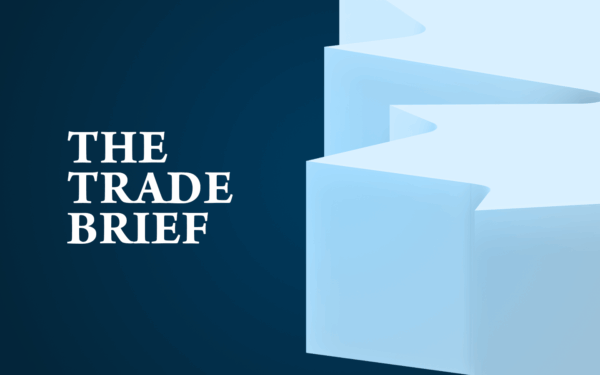Why America’s Election is Canada’s Business
As published in Policy Magazine
One could say without exaggeration that Canadians follow American elections just as closely as they do their own federal politics. And rightly so. Our economy and security are fully intertwined with our southern neighbour, a superpower and still the largest economy in the world. Every decision at 1600 Pennsylvania Ave or on Capitol Hill has a direct or indirect impact on Canada.
For the business sector and its employees, that connection is even more acute. With over $595 billion of our annual exports destined to the U.S. and hundreds of billions of Canadian investments there, how the White House and Congress govern is existential to our prospects.
And beyond the final outcome of the elections, the long electoral process, including primaries, can result in difficult-to-navigate waters of their own. In the 2016 presidential campaign, one candidate suggested “tearing up NAFTA” and directly targeted Canada for per the quote, “decades of abuses”.
Despite perennial trade irritants, Canadians have historically been able to work with every US administration. But NAFTA was a close call. An executive order cancelling it was drawn up and ready to be released. Disaster was only averted at the last minute through a mix of good luck and skilled maneuvering by a handful of insiders, including then Agriculture Secretary Sonny Perdue. Without his intervention, NAFTA could very well have been cancelled outright instead of merely modernized through intense negotiations. Unfortunately, there is no guarantee that we will not find ourselves in a similar situation again.
In part, that’s because the level of general misinformation about trade has only increased in the last five years. Facts are often replaced by myths and conspiracy theories. Once these take hold, it can be near- impossible to set the record straight.
The razor-thin majorities of recent electoral cycles have given agency to small factions of media-savvy special interests who have pushed policies and narratives in harrowing directions. For Canada, it is less about which party wins the White House or Congress, but about how they will govern when faced with such influential stakeholders. At best, this can result in the party in power becoming more insular and focused on domestic issues.
This is why it is paramount that we work diligently to ensure that those seeking high office, regardless of where they sit on the political spectrum, are as well informed as possible on their way there. That work must be consistent and ongoing, involving a coordinated effort between the public and private sectors. It sometimes takes years for the benefits of those relationships to manifest themselves but when they do, they are vitally important. The close call with NAFTA provides a useful example. In 2007, Secretary Perdue was the Governor of Georgia when, together with Premier Jean Charest, he founded the Southern States and Eastern Provinces Alliance. More than 10 years later, he was in the Oval Office, preventing a move that would have been devastating for our nation’s economy.
Not letting our guards down also means not taking anything for granted. We should not assume that American officials spend much time thinking about Canada. Worse, American politicians who might appear to share a similar outlook to Canada may in fact be relying on outdated or outmoded perspectives about our bilateral relationship that would be detrimental to our mutual interests.
When President Biden came to power, the discernable sigh of relief in our government blinded many to the fact that his administration’s ambitious economic agenda included doubling down on Buy American provisions. While it is fair to say that those measures do not necessarily target Canada, they demonstrate a lack of appreciation of how integrated our economies are. That lack of knowledge can in turn lead to damaging policies. Unfortunately, seeking amendments to draft bills and finding administrative fixes to presidential executive orders after the fact is near impossible. The better avenue is working to ensure that the policy process takes those facts into consideration at the onset.
Canada must, of course, respect the American electoral process and avoid any appearance of foreign interference, yet elections are times of intense policy development. We must be extra-vigilant and be prepared to respond. In this, Canada’s private sector plays a major role. With strong people-to-people ties, Canadian business leaders can demonstrate the immense impact of our investments in the United States, including how we fuel American manufacturing through our supply chains. Canadian companies operating in the US directly employ 825,000 Americans, with investments on the rise. Many of these companies, such as Linamar, Martinrea and Magna, have been instrumental in the rapid expansion of the American automotive sector in the Southeast US, especially in Tennessee, South Carolina, Georgia and Alabama.
First and foremost, our number one priority must be the renewal of the Canada-US-Mexico Agreement (CUSMA) when it comes up for review in 2026.
At the Business Council of Canada, we will be watching closely and advocating for a few key developments on the road to November 2024.
First and foremost, our number one priority must be the renewal of the Canada-US-Mexico Agreement (CUSMA) when it comes up for review in 2026. The best scenario is for the next President to roll over the agreement. However, should the next White House wish to re-open some provisions, in addition to the uncertainty this would create, the next Congress would surely want to weigh in. Given the narrow majority margins likely to continue and the polarization between the two parties, this could present a tremendous challenge for Canada.
That’s why, to cite a specific example, Canada’s proposed unilateral digital services tax is so poorly timed. The Canadian government should avoid provoking a trade war during an election cycle in which the review and renewal of CUSMA could become a campaign issue. Yet, Ottawa decided to break with a clear majority of Organisation for Economic Co-operation and Development (OECD) countries by refusing to delay the imposition of this tax in January 2024.
For the sake of our essential trade relationship with the United States, it is critical that we pull back this decision, which both Republicans and Democrats view as contravening CUSMA. In advocating for the renewal of CUSMA, Canada needs to demonstrate that we are ourselves compliant with the agreement. That means addressing areas in which Canada is not abiding by the trade deal.
The second issue we’ll be watching is Canada’s commitment to defence and security. There has been increased attention in the US regarding Canada’s lack of progress, even motivation, to achieve our 2% NATO spending commitment. The U.S. decision to develop the AUKUS defence agreement with Australia and the UK should have been a wake-up call. If we want to avoid the “security freeloader” label, which might squander goodwill and spill over to other policy areas, we should make the significant investments that our national defence requires.
Third, we must keep a close eye on how evolving politics might affect regulatory regimes in the United States. Should President Biden be granted a second mandate, we can expect that the race for critical minerals will pick up speed. Our governments in Canada at both the federal and provincial/territorial levels must not wait to play catch-up. The federal government, in particular, must follow through on its commitment to reform and speed up the permitting process, especially for energy transition projects.
More generally, the US election result will no doubt influence investor sentiment and market trends. And let’s face it, the next election is unprecedented. The leading Republican candidate is a former president who is facing several criminal indictments. The polarization of the American people will bring political uncertainty and some volatility, which could influence consumer behavior. The United States may face some unrest. Canada must anticipate various scenarios and prepare for potential disruption.
With so much hanging in the balance for Canada in this upcoming election cycle – and all those to follow – we cannot afford to be passive and therefore caught off-guard. The private sector understands this. It is one of the reasons why the Business Council of Canada is opening an office in Washington DC to continue to take our message about the benefits of our economic ties to American leaders of all stripes.
Relationships must be fed and nurtured. Let’s make sure our ties to our closest friend and partner remain strong, no matter where the road to the White House leads.









